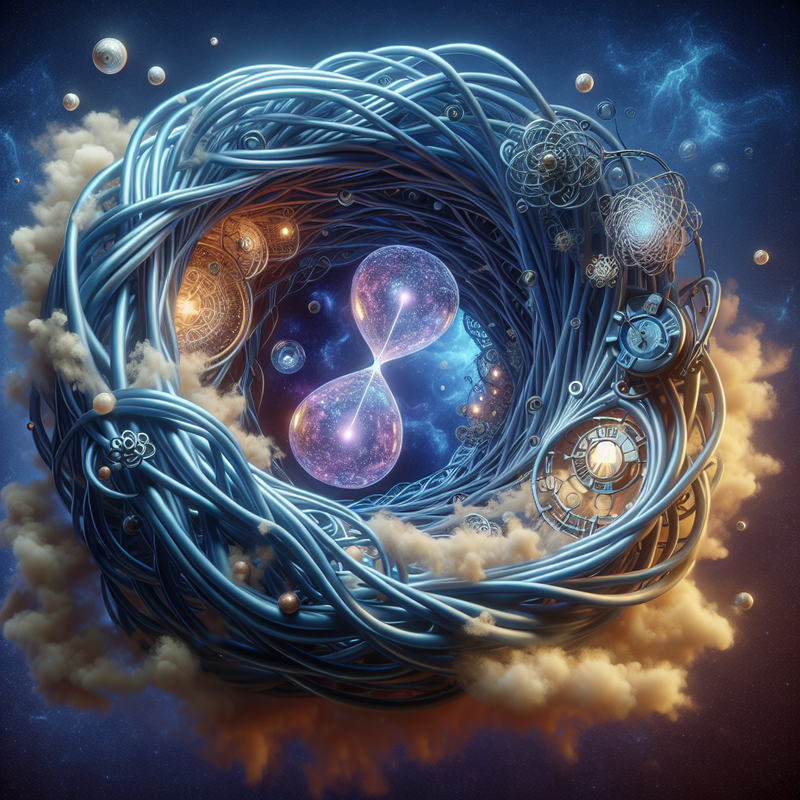In a radical departure from conventional thought, a team of scholars has put forth the provocative notion that the passage of time may be nothing more than an elaborate mirage, born out of the complexities of quantum entanglement.
This avant-garde speculation strikes at the core of our foundational beliefs and invites us to rethink the essence of our perceived reality.
At its heart, this speculative approach focuses on quantum entanglement
The enigmatic interconnection between two entities wherein the manipulation of one instantaneously influences its entangled counterpart, irrespective of the spatial divide between them. This central idea contends with and unsettles the long-accepted notions within general relativity that regard time as an intrinsic element woven into the continuum of space-time, alterable by the gravitational fields such as those near black holes.
In their pursuit of a unified understanding that reconciles the dissonance between general relativity and quantum mechanics on the subject of time’s nature
Alessandro Coppo and fellow scholars have unveiled a paradigm-shifting assertion that time’s forward march may stem from entanglement with a temporal gauge – a clock. From this perspective, to an observer on the outside looking in, the cosmos might present itself as a vast, unchanging tableau.
Their investigations, as elaborated in a publication within Physical Review A
Traverse the profound implications of an existence where the experience of time’s progression is intimately linked to quantum entanglement phenomena. The implications of Coppo’s proposition highlight the imperative need to delve deeper in order to truly grasp not only the definition of time but also its profound connection to the foundations of our being.
Despite the innovation of this concept
Numerous physicists maintain that a fulsome and coherent elucidation of time’s essence is still necessary. Verifying and empirically substantiating this theory stand as formidable tasks. Nonetheless, this relentless quest to unravel the mysteries of the universe is emblematic of the dynamic nature of scientific pursuit.
This latest academic discourse has stirred the pot, prompting as many inquiries as it seeks to resolve and smudging the boundaries that delineate scientific inquiry, philosophical pondering, and the rudimentary aspects of human cognition. As the scientific community continues to dissect the complexities of quantum physics and time’s fabric, the hypothesis fortifies the precept that the nature of reality may be vastly more intricate than our present wisdom acknowledges.

